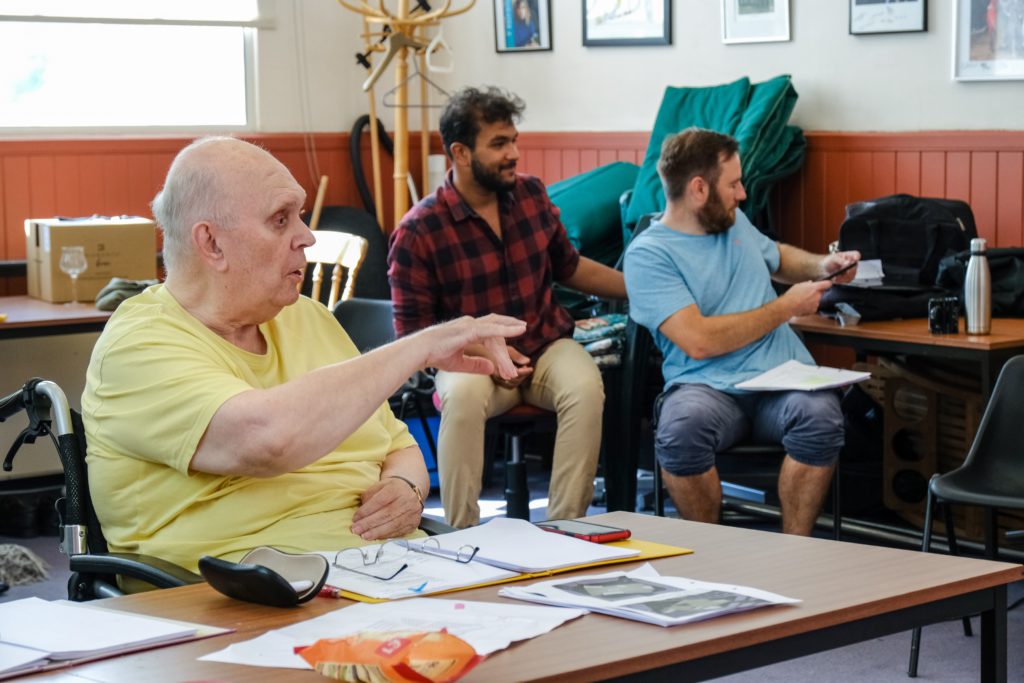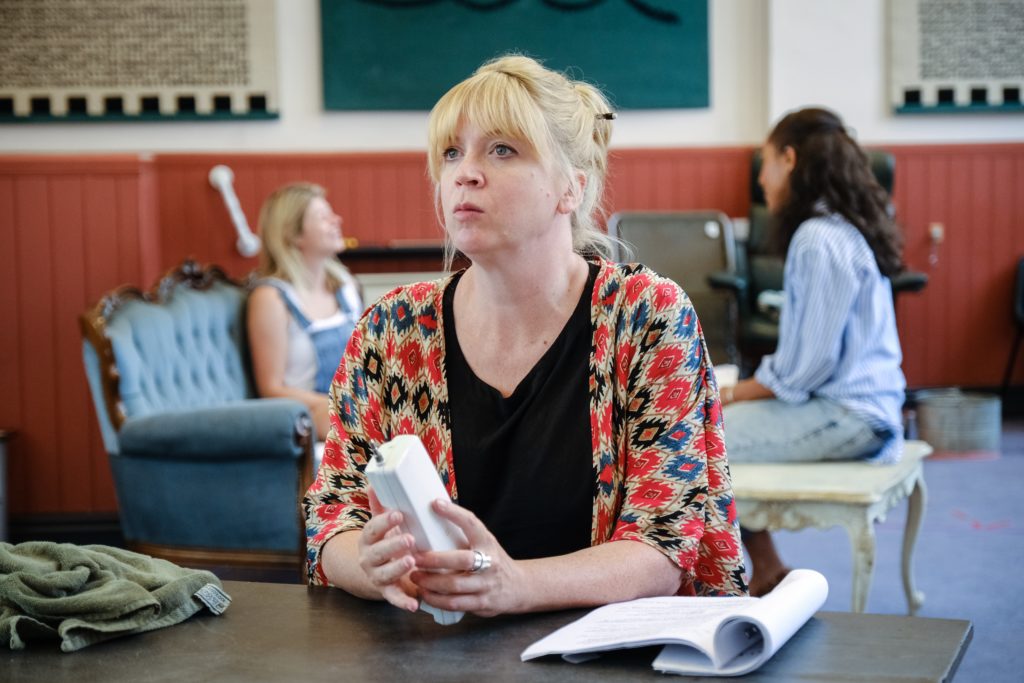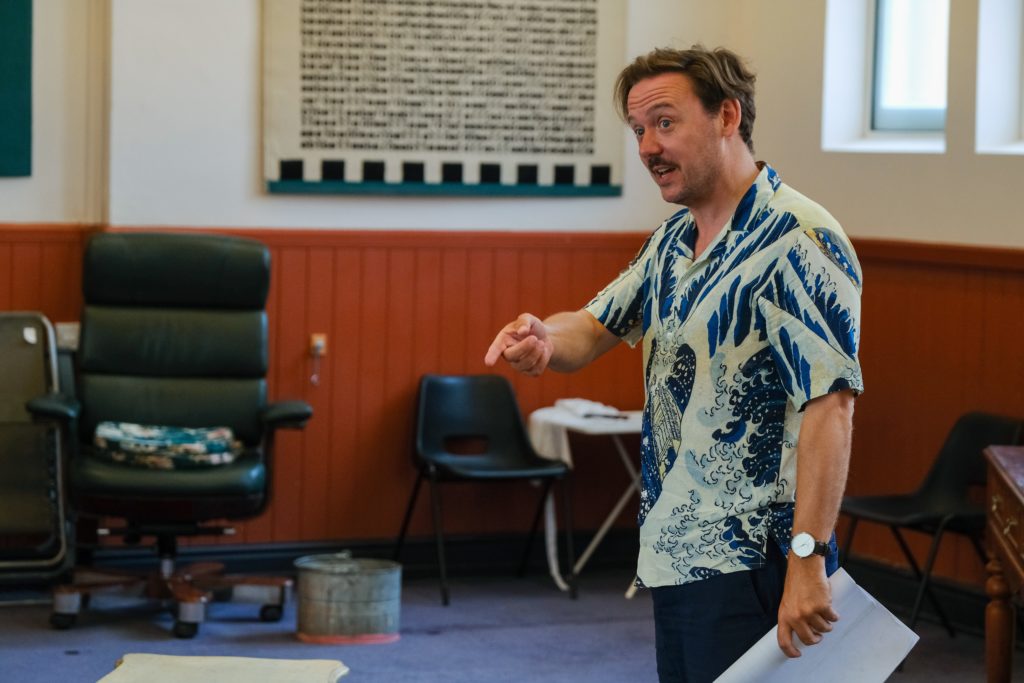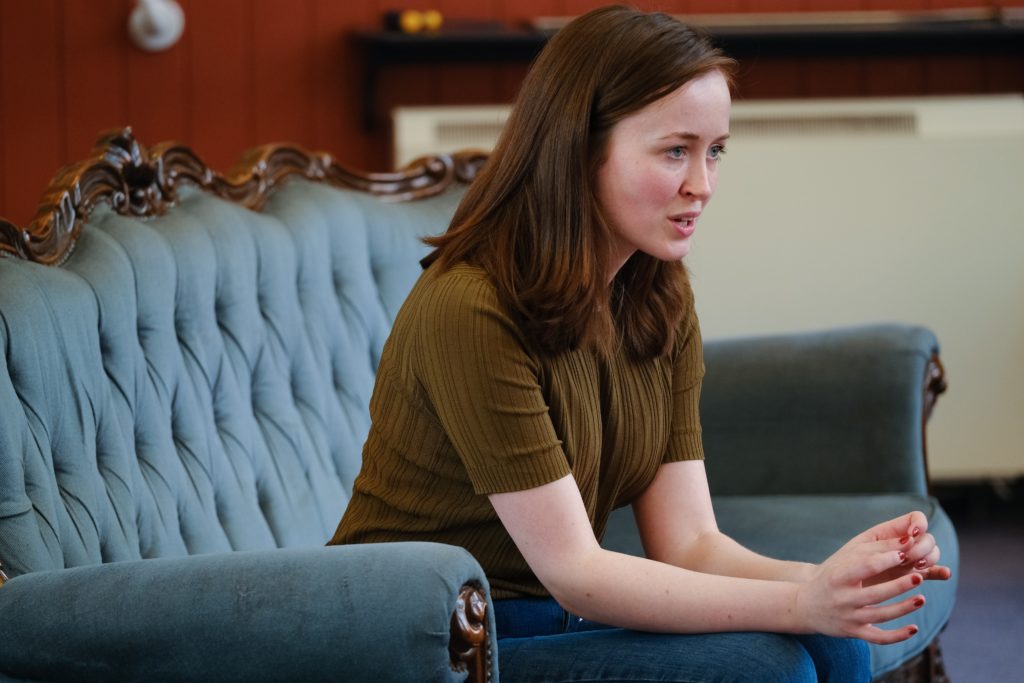
NO sooner has the world premiere of Alan Ayckbourn’s 86th full-length play All Lies concluded at the tiny, moorland Esk Valley Theatre than his 87th opens at his regular home, Scarborough’s Stephen Joseph Theatre.
Family Album is one of five plays penned by Ayckbourn in lockdown, or is it six, as Esk Valley Theatre producer Sheila Carter suggested on press night?
“Oh lord, I’ve rather lost count, but there are two more waiting after All Lies and Family Album,” says Sir Alan, whose number of plays now outstrips his age of 83.
“Once lockdown occurred, I was like one of those ocean liners that chugged on with no brakes until running out of fuel, but there was all that frustration of no productions going on.”
What joy for Sir Alan when he could at last return to the rehearsal room in May last year for the SJT’s summer production of The Girl Next Door. “Doing that play gave me a huge charge of the batteries,” he says.
This year, already he has directed All Lies in its premiere at The Old Laundry Theatre, Bowness, in May and the Robinson Institute, Glaisdale, last month. Now he is pulling the strings on Family Album as writer, director and sound designer, directing Elizabeth Boag, Georgia Burnell, Tanya-Loretta Dee, Antony Eden and York-born Frances Marshall as he tenderly chronicles the trials, tribulations and temptations of three generations of one family across 70 years in the same home.
Presented, as ever, in The Round, Ayckbourn interweaves his account of a moving-in day in 1952, a birthday party in 1992 and a moving-out day in 2022, “when all the skeletons are suddenly jumping out of their cupboards”.

Join housewife Peggy (Burnell) and RAF veteran John (Eden) as they proudly move into the first home they can really call their own; daughter Sandra (Marshall), frantically negotiating the challenges of her ten-year-old daughter’s birthday party without her AWOL husband; and granddaughter Alison (Boag) and her partner Jess (Dee), finally escaping the house she has somewhat unwillingly inherited.
“My inspiration was a programme on BBC4 called A House Through Time, a fascinating piece of social history [presented by historian David Olusoga]. I thought, I could do this on a smaller scale – I didn’t want to go back centuries, so I started within my lifetime, in the 1950s.
“We have three time periods layered on top of each other happening simultaneously in the same house, following a family from the grandparents in 1952, to the children in 1992 and then the grandchildren today.”
Ayckbourn is no stranger to playing with time, but not in this way before. “For me it’s new: I’ve used time so much – I’ve run it backwards and forwards, and I’ve run it sideways, and I’ve occasionally run it forwards and backwards simultaneously and at different speeds, but never in this way,” he says.
Parallels have been drawn with Ayckbourn’s 2018 premiere, A Brief History Of Women, a comedy in four parts, each set 20 years apart, focusing on an unremarkable man and the remarkable women who loved him, left him, or lost him over sixty years, and the equally remarkable old manor house that saw and heard it all happen.
“That play was the story of the house seen through the eyes of the people who ‘mucked about with it’, as it changed from a country house to a country-house hotel,” says Sir Alan. “This time, it’s the people, seen through the house.
“I’ve realised with age, when you have a choice, you can either look back, and I can look back to the wartime 1940s, with my first conscious memory of an air raid shelter, right up to 2022, which is one choice, or you can look forward, the other choice.

“It’s no coincidence that our most successful children’s writers, Morpurgo and Rowling, have looked at science fiction in order to reach a generation they’re not able to reach otherwise – and the best science fiction reflects what’s happening now.
“I can write plays for my near-contemporaries, but my plays for young people also give me the chance to make up my own rules, which can apply to both me and the children I’m writing for.”
Family Album reflects on the past and its impact on the next generation, especially on women. “One of the themes is the enormous journey women have been on. My God, they have moved a long way, and the most interesting thing for me to do was to write a play set in 1952, 1992 and 2022, that would be much more interesting if I interweaved all three.
“It’s my latest exploration of the theatre space offered by The Round, which goes back to How The Other Half Loves [written in 1969], with everyone in the play occupying one space.”
Ayckbourn says a “stinging contemporary play” is not in his armoury at present – the romantic All Lies, for example, was set in 1957-58 – and he does not foresee writing “directly” about our rotten age. Instead he will continue looking at changing times.
“I do explore the changes in men in future plays,” he says. “I’m very curious to see quite where men will go. Many men have changed; for every dyed-in-the-wool chauvinist, there is a new man.”
Alan Ayckbourn’s Family Album runs at Stephen Joseph Theatre, Scarborough, until October 1. Box office: 01723 370541 or sjt.uk.com.

